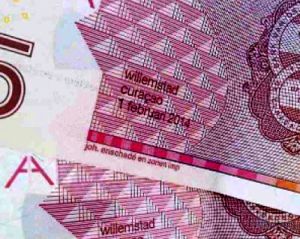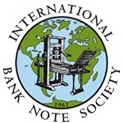 It's that time of the year again: the nominees for Banknote of the Year 2013 are awaiting your votes. Every year the International Banknote Society (IBNS) gives out this award which has been won by Kazakhstan for notes issued in 2011 and 2012. The 1000 tenge note from Kazakhstan which was released at the end of 2013 is one of the nominees and (in my opinion) one of the favorites to win the title.
It's that time of the year again: the nominees for Banknote of the Year 2013 are awaiting your votes. Every year the International Banknote Society (IBNS) gives out this award which has been won by Kazakhstan for notes issued in 2011 and 2012. The 1000 tenge note from Kazakhstan which was released at the end of 2013 is one of the nominees and (in my opinion) one of the favorites to win the title.
You can cast your vote here if you are a member of the IBNS (which I strongly recommend).
The nominees are (in no particular order):
My personal top 3 is:
- Russia's 100 rouble
- Canada's 10 dollar
- Kazakhstan 1000 tenge
The BBC reports: "An extremist group operating in Iraq and Syria seems to have made a banknote bearing the image of Osama Bin Laden, in an apparent effort to declare sovereignty over areas in their control. The note claims to be worth "one Islamic hundred pounds" and says in both English and Arabic it is from the Islamic State in Iraq, the Kurdpress news agency reports. But one expert talking to the Kuwaiti Al-Ra'y website said he was already suspicious about why the currency had been issued in pounds instead of Iraqi dinars, and added he did not think al-Qaeda would print English on its currency.
Meanwhile, Shafaq News in Baghdad points out the extremist group emerging in Iraq's western Anbar province is usually known by a different name - The Islamic State of Iraq and the Levant (ISIS). The banknotes have not convinced pro-militant groups either. One group says in a Facebook post that the bills are a hoax meant to discredit the ISIS. "Look closely you'll see it's Photoshop," the group said, accusing local Sunni militias of "playing tricks". We've also noticed the Bin Laden banknote has the same serial number - A001088 - as the Palestinian 100-pound note featured on Wikipedia."
The note in question:
The Palestinian note it resembles from Wikipedia:
One of the prime reasons for a central bank to introduce polymer banknotes is the added security 'plastic' money provides. But is this really true? Counterfeit polymer notes have been popping up here and there.
In general however the claim appears to be true. The Bank of Canada has announced that the number of counterfeited notes have dropped by 90% since the introduction of the polymer series. Of course counterfeiters will always try to, literally, make money but it appears that the polymer notes are indeed a bit harder to replicate.
 A beautiful new banknote in my collection this week and one which has been on my wishlist for a long time. Last week I had the chance to get one for a very reasonable amount of money so I finally could add this commemorative note from Bhutan. It was issued to commemorate the royal wedding of the King of Bhutan, Jigme Khesar Namgyel Wangchuck, to Jetsun Pema in 2011. The 100 ngultrum note (P35) was issued in 2011 in a special folder.
A beautiful new banknote in my collection this week and one which has been on my wishlist for a long time. Last week I had the chance to get one for a very reasonable amount of money so I finally could add this commemorative note from Bhutan. It was issued to commemorate the royal wedding of the King of Bhutan, Jigme Khesar Namgyel Wangchuck, to Jetsun Pema in 2011. The 100 ngultrum note (P35) was issued in 2011 in a special folder.
I am quite the sucker for beautiful banknotes and when it comes to these the former Dutch colony of Suriname has some great notes to add to my collection. In particular the series with the birds and flowers from 2000 is in my opinion one of the greatest looking banknote series ever. I already had a few of them and this week I could add the 1000 gulden note (P151). I'm still looking for the 500, 5000, 10,000 and 25,000 gulden to add to my collection but these are a little more expensive.
 The Guardian reports about the residents of Rio who fight inflation.
The Guardian reports about the residents of Rio who fight inflation.
Fed up with high inflation and rip-off prices ahead of this year's World Cup and the Olympics in 2016, they have set up a Facebook page called "Rio $urreal – Don't Pay" dedicated to "exposing and boycotting the extortionate prices being charged by bars, restaurants and shops.
The $urreal itself is a mock banknote – Brazil's currency is the real – emblazoned with the face of Spanish surrealist artist Salvador Dalí. O Globo, Rio's biggest-selling daily newspaper, joked that the city needed its own currency, and some media-savvy Cariocas decided to create one, with Dalí's face on the front in place of the usual Brazilian national heroes.
 The central bank of Morocco, Bank Al-Maghrib, has denied the issuing of a 1000 dirham note. Lemag.ma reports that those rumours were spread on social media along with pictures of the alleged new note (seen below). It seems to be a photoshopped version of the new 100 dirham note.
The central bank of Morocco, Bank Al-Maghrib, has denied the issuing of a 1000 dirham note. Lemag.ma reports that those rumours were spread on social media along with pictures of the alleged new note (seen below). It seems to be a photoshopped version of the new 100 dirham note.
A new family of notes has been introduced in Morocco since August 2013. The highest denomination at this moment is the 200 dirham note.
The 100 dirham note which seems to be the source for the fake note above:
 Last year I wrote about the Giant and the Titan, the two illustrious banknotes of 1 million and 100 million pound which are technically legal tender and are closely guarded by the Bank of England. They serve as backup for the Scottish banking system.
Last year I wrote about the Giant and the Titan, the two illustrious banknotes of 1 million and 100 million pound which are technically legal tender and are closely guarded by the Bank of England. They serve as backup for the Scottish banking system.
Channel 4 got a rare glimpse of these two banknotes (and could even hold them!) when they filmed an item on Mark Carney discussing the referendum on Scottish independence which will be held on 18 September of this year. Carney warned Scotland about the fiscal dangers of independence.
You can see the news item after the click:
Read More
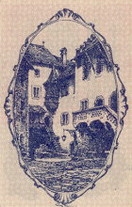 Four new banknotes this week, including a set with EVERY banknote ever issued by a single country! How is that possible? They are of course from the country of Liechtenstein. The small alpine country between Switzerland and Austria has only issued three banknotes in its existence: a 10, 20 and 50 heller note in 1920. These notes (P1-3) are very small but show a nice drawing on the back of castles and town sites in Liechtenstein. Liechtenstein is also the 202nd country added to my collection!
Four new banknotes this week, including a set with EVERY banknote ever issued by a single country! How is that possible? They are of course from the country of Liechtenstein. The small alpine country between Switzerland and Austria has only issued three banknotes in its existence: a 10, 20 and 50 heller note in 1920. These notes (P1-3) are very small but show a nice drawing on the back of castles and town sites in Liechtenstein. Liechtenstein is also the 202nd country added to my collection!
The fourth new banknote is a nostalgic one because I used to pay with it. It's the 25 gulden from The Netherlands. This last issue of the 25 gulden from 1989 (P100) is a fine example of the beauty and design of the dutch banknotes in the past, this one designed by Jaap Drupsteen. Yes, I do miss these notes so I'm glad I could add one to my collection this week.
I just finished describing the first batch of 67 banknotes from 51 different countries which have a space and astronomy theme. Of course I'll keep looking out for more banknotes with this theme.
You can find the notes on my special space and astronomy banknotes theme blog by clicking here or on the astronaut at the right.
 The Reserve Bank of India has published a press release stating that all banknotes issued prior to 2005 (that's everything up to P94 for us collectors) will be withdrawn from 31 March 2014. This is an effort to rein in on its black money and fake currency market that is estimated at 50% of its gross domestic product.
The Reserve Bank of India has published a press release stating that all banknotes issued prior to 2005 (that's everything up to P94 for us collectors) will be withdrawn from 31 March 2014. This is an effort to rein in on its black money and fake currency market that is estimated at 50% of its gross domestic product.
From April 1, 2014, the public will be required to approach banks for exchanging these notes. Banks will provide exchange facility for these notes until further communication. The Reserve Bank further stated that public can easily identify the notes to be withdrawn as the notes issued before 2005 do not have on them the year of printing on the reverse side.
The Reserve Bank has also clarified that the notes issued before 2005 will continue to be legal tender. This would mean that banks are required to exchange the notes for their customers as well as for non-customers. From July 01, 2014, however, to exchange more than 10 pieces of 500 rupees and 1000 rupees notes, non-customers will have to furnish proof of identity and residence to the bank branch in which she/he wants to exchange the notes.
The Reserve Bank has appealed to the public not to panic. They are requested to actively co-operate in the withdrawal process.
 According to a Greek news site the Central Bank of Macedonia has denied rumours circulating in Greek media that a 200 denar banknote would be issued with the image of Alexander the Great riding his horse, Bucephalus on it.
According to a Greek news site the Central Bank of Macedonia has denied rumours circulating in Greek media that a 200 denar banknote would be issued with the image of Alexander the Great riding his horse, Bucephalus on it.
"Concerning information in the media about new paper currency we are supposed to have issued. We wish to clarify that no-one can use paper currency images without having first received the Central Bank Council approval. The Central Bank of FYROM has not approved any of the banknotes featured in the media."
So, why did Greeks spread this rumour? And why is Macedonia denying it so fiercly? Here's an article in Der Spiegel with more info on the dispute between Greece and Macedonia. It goes all the way back to antiquity and it has to do with the name Macedonia. Is the 'real' Macedonia the country that's a part of former Yugoslavia or is it the region in the north of Greece with the same name? The 'real' Macedonians would be the 'legitimate descendants' of Alexander the Great and Aristotle.
Yes, I'm using that many apostrophes for a reason...
The Business 2 Community website has published a nice infographic on the banknotes issued in the United Kingdom and who's on them. Because of the size of the image, click below.
Read More


 The French Pacific Territories issue their new series of banknotes today. The beautiful old banknotes which were first issued in 1969 will circulate side by side with the new notes until 30 september 2014. From 1 October 2014 only the new banknotes will be legal tender. Read more on this new series in this post.
The French Pacific Territories issue their new series of banknotes today. The beautiful old banknotes which were first issued in 1969 will circulate side by side with the new notes until 30 september 2014. From 1 October 2014 only the new banknotes will be legal tender. Read more on this new series in this post.
And here's the new series in all its glory:
500 francs
1000 francs
5000 francs
10,000 francs
 The Curacao Chronicle reports that a new 25 gulden note from the Netherlands Antilles has been issued with a future date: 1 February 2014.
The Curacao Chronicle reports that a new 25 gulden note from the Netherlands Antilles has been issued with a future date: 1 February 2014.
Every old note is apparently already issued and they couldn't wait for 1 February anymore.
A picture of the new date:
« Vorige Pagina |
Toon berichten 826-840 van 1227 |
Volgende Pagina »
 It's that time of the year again: the nominees for Banknote of the Year 2013 are awaiting your votes. Every year the International Banknote Society (IBNS) gives out this award which has been won by Kazakhstan for notes issued in 2011 and 2012. The 1000 tenge note from Kazakhstan which was released at the end of 2013 is one of the nominees and (in my opinion) one of the favorites to win the title.
It's that time of the year again: the nominees for Banknote of the Year 2013 are awaiting your votes. Every year the International Banknote Society (IBNS) gives out this award which has been won by Kazakhstan for notes issued in 2011 and 2012. The 1000 tenge note from Kazakhstan which was released at the end of 2013 is one of the nominees and (in my opinion) one of the favorites to win the title.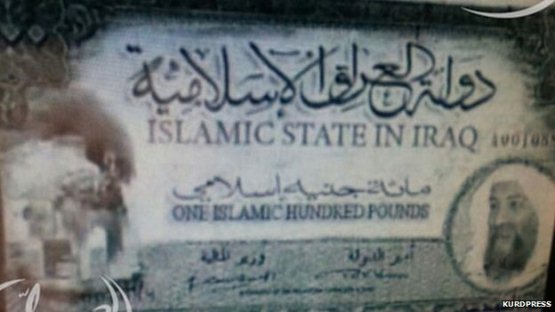
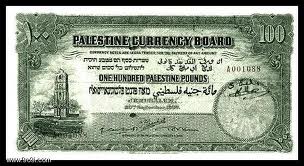
 A beautiful new banknote in my collection this week and one which has been on my wishlist for a long time. Last week I had the chance to get one for a very reasonable amount of money so I finally could add this commemorative note from Bhutan. It was issued to commemorate the royal wedding of the King of Bhutan,
A beautiful new banknote in my collection this week and one which has been on my wishlist for a long time. Last week I had the chance to get one for a very reasonable amount of money so I finally could add this commemorative note from Bhutan. It was issued to commemorate the royal wedding of the King of Bhutan, 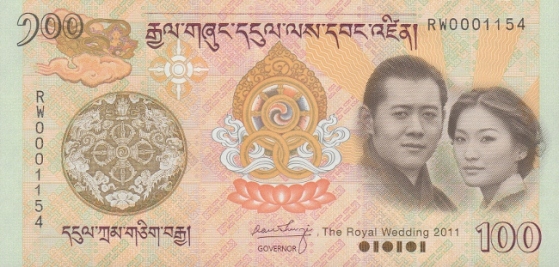
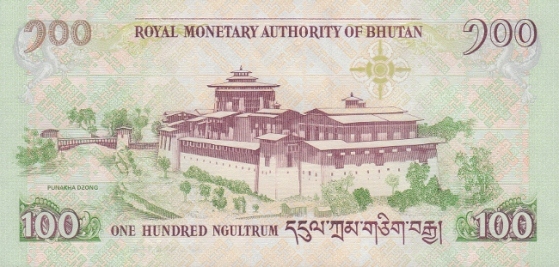

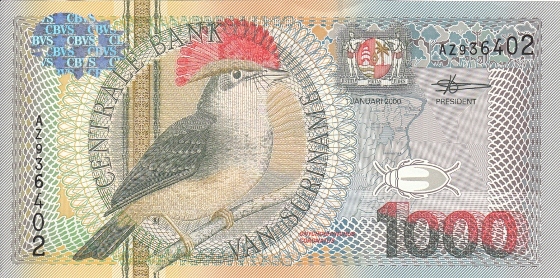
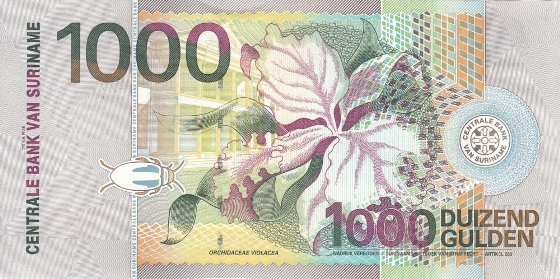
 The Guardian
The Guardian 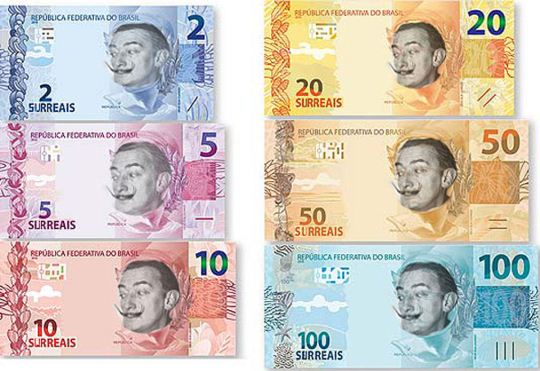
 The central bank of Morocco,
The central bank of Morocco, 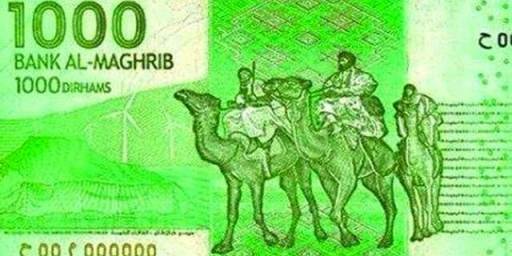
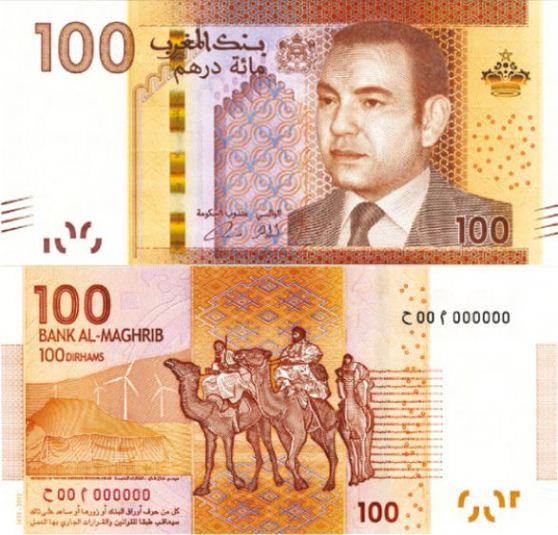
 Last year I
Last year I 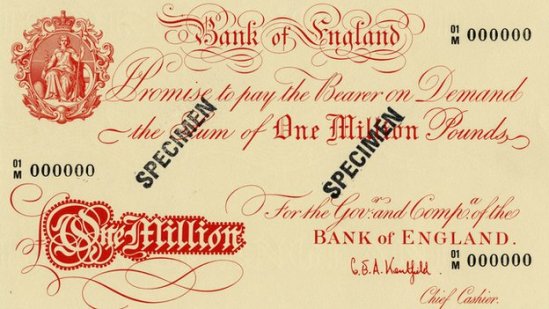
 Four new banknotes this week, including a set with EVERY banknote ever issued by a single country! How is that possible? They are of course from the country of Liechtenstein. The small alpine country between Switzerland and Austria has only issued three banknotes in its existence: a 10, 20 and 50 heller note in 1920. These notes (
Four new banknotes this week, including a set with EVERY banknote ever issued by a single country! How is that possible? They are of course from the country of Liechtenstein. The small alpine country between Switzerland and Austria has only issued three banknotes in its existence: a 10, 20 and 50 heller note in 1920. These notes (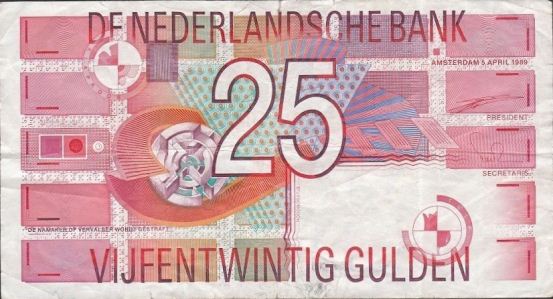
 The
The  According to a
According to a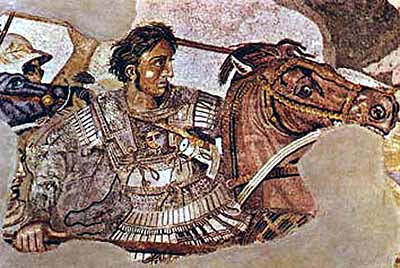


 The French Pacific Territories issue their new series of banknotes today. The beautiful old banknotes which were first issued in 1969 will circulate side by side with the new notes until 30 september 2014. From 1 October 2014 only the new banknotes will be legal tender. Read more on this new series in
The French Pacific Territories issue their new series of banknotes today. The beautiful old banknotes which were first issued in 1969 will circulate side by side with the new notes until 30 september 2014. From 1 October 2014 only the new banknotes will be legal tender. Read more on this new series in 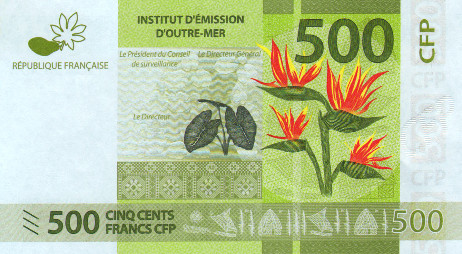
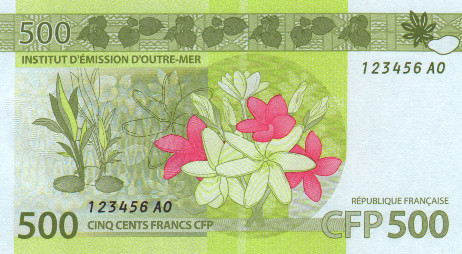
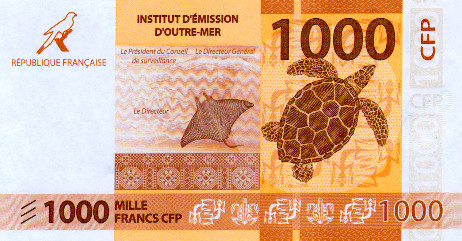
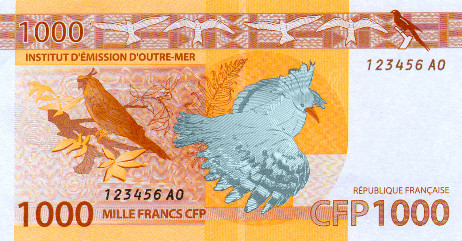
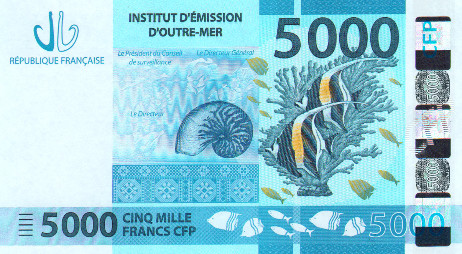
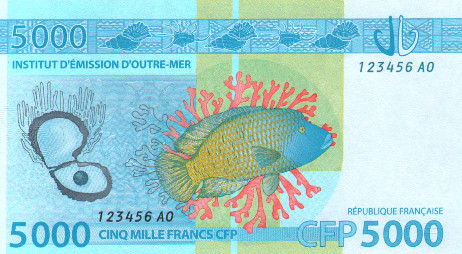
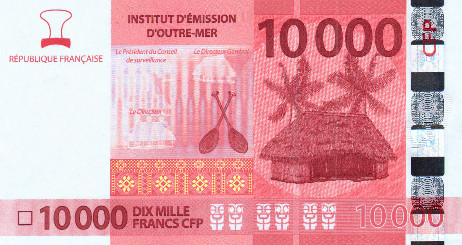
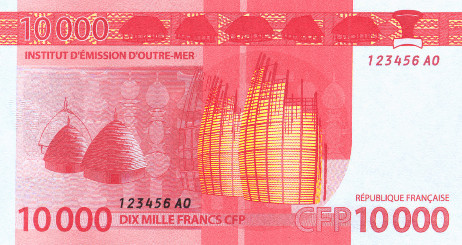
 The
The 